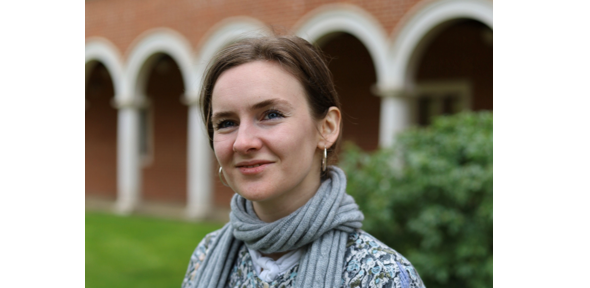
Room 306
Faculty of Modern and Medieval Languages and Linguistics Raised Faculty Building University of Cambridge Sidgwick Avenue Cambridge CB3 9DA United Kingdom
Ruth Murphy is a post-doctoral scholar working on the history and memory of Allied prisoners of war in Italy. Her research, outlined below, is funded by the Monte San Martino Trust.
After Italy surrendered to the Allies on 8 September 1943, nearly 50,000 Allied POWs escaped from Italian prison camps. Many of these fugitives were helped and hidden by local Italians. Building on an archive of first-hand accounts from the period, now held at the Cambridge University Library, Ruth’s research project is entitled ‘Connecting tunnels. An integrated narrative of POW stories’. The central idea is to combine the Monte San Martino Trust’s rich collection of POW stories and those of their helpers; ‘tunnels’ which often quite literally intersected!
The book she is writing brings together many different voices into a coherent narrative, and crucially, gives the story over entirely to its protagonists. Such an approach has both literary and historical value. It shows how the same historical event is lived quite differently among those involved, it provides an immersive experience of the past (by eliminating the author’s ‘voiceover’), and it also has a vibrant comic value.
Alongside this work, Ruth has a strong interest in the relationship between ethics, literature, and history, and particularly how ethical concepts interact with or arise from historical events. Her PhD at the University of Cambridge was entitled ‘Ethical Vision in the Twentieth Century: Primo Levi, Hannah Arendt, James Baldwin’, and supervised by Professor Robert Gordon. It focussed on two ethical concepts which arose as responses to the Holocaust and have since made their way into our shared moral vocabulary: Arendt's 'banality of evil', inspired by her portrait of Adolf Eichmann (Eichmann in Jerusalem, 1963), and Levi's 'grey zone' (The Drowned and the Saved, 1986), the term he used to describe the insufficiency of traditional categories of good and evil in the Nazi concentration camps. In her thesis, these two texts were connected to a series of other influential ethical writings (work by James Baldwin, alongside the philosophy of Iris Murdoch, Martha Nussbaum, María Lugones, and Miranda Fricker), articulating the vision they form together.
Ruth is a graduate of Trinity College Dublin (European Studies) and, following her PhD at Cambridge, held a post-doctoral position on the Life Worth Living project at the University of Sheffield.
Allied POWs in Italy; Post-war Italian literature; Italian fascism; Holocaust Studies; and, more broadly, non-fiction; ethics and literature; feminism; 20th century intellectual history.
Articles and book chapters
- R. Murphy, ‘Faith in Writing: Primo Levi and James Baldwin’, in Levi Beyond Levi: Thinking with Primo Levi in the 21st Century, ed. by Stefano Bellin and Simone Ghelli (Liverpool University Press, forthcoming 2025).
- R. Murphy, ‘Let me look again. The moral philosophy and literature debate at 40’, New Literary History, Vol. 55., No. 1 (winter 2024), pp. 21-46.
- R. Murphy, ‘The Child in Adult Fiction. Useppe and the Ethical Vision of Elsa Morante’s La Storia’: Annali d’italianistica 42 (autumn 2024), pp. 219-240.
- R. Murphy, ‘Philosophers of the Intimate in a Time of Confinement: Iris Murdoch and Martha Nussbaum’, Studies: An Irish Quarterly Review, Vol. 110, No. 438 (summer 2021), pp. 241-253.
Forthcoming 2026
- R. Murphy, ‘Tracing the banality of evil from Dostoevsky to Arendt’, Textual Practice (2026; special issue, subject to peer review)
- R. Murphy and J. Forstenzer, ‘“Why did he tell us that?”: John Dewey’s aesthetics, memory in film, and the existential potential of dissonance’, Journal of Social and Political Philosophy (Jan 2026)
Book Review
- R. Murphy, Review of Alexander Batthyány, Viktor Frankl and the Shoah: Advancing the Debate, Modern Jewish Studies (March 2024)
Digital annotation
- R. Murphy, ‘Qui mi fermo e cerco di tradurre.’ Peer-reviewed scholarly analysis (1,000 words) for a digital annotated edition of the chapter ‘Il canto of Ulysses’ from Primo Levi’s If This is a Man.


